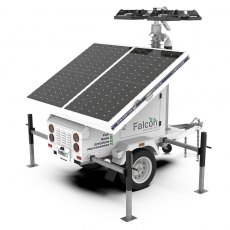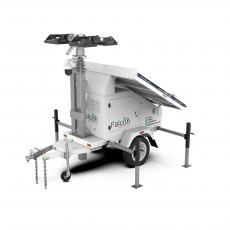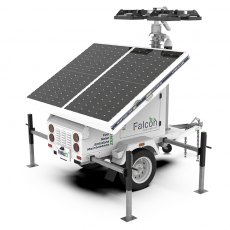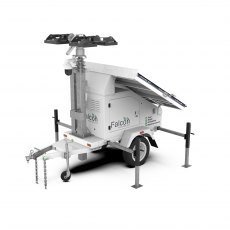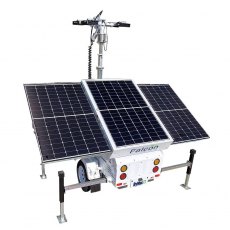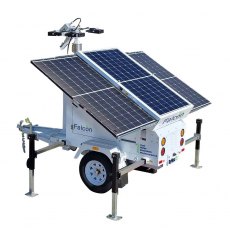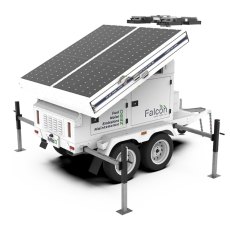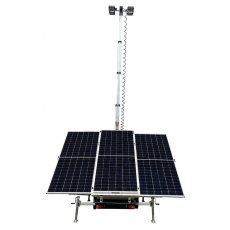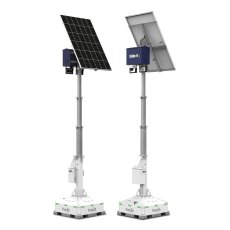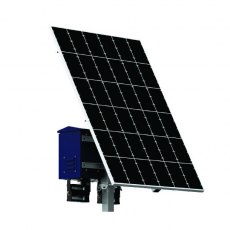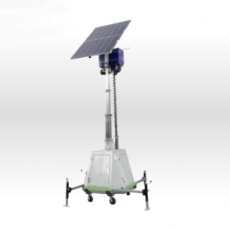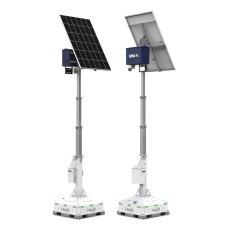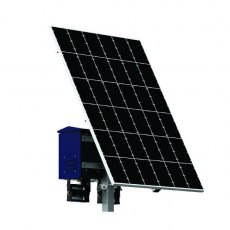Solar Lighting FAQs
What is renewable energy?
Renewable energy is energy derived from natural sources that are replenished at a higher rate than they are consumed. Sunlight and wind, for example, are such sources that are constantly being replenished. Renewable energy sources are plentiful and all around us.
Can renewable energy be stored?
Renewable energy generation primarily relies on natural factors – hydroelectric power depends on seasonal river flows, solar power on sunlight availability, and wind power on wind consistency – resulting in intermittent energy production. Similarly, energy demand fluctuates as people use varying amounts of energy at different times of the day and year. Therefore, when renewable energy generation exceeds demand, it is practical to store the surplus energy for later use when demand surpasses generation.
One significant advantage of energy storage is the prevention of renewable resources being wasted. There are occasions when the electricity produced by renewable sources exceeds the immediate need. In such cases, renewable generators might need to reduce their output to maintain a balanced system, where electricity supply matches demand, resulting in lost opportunities to produce clean energy.
Energy storage solutions enable renewable energy resources to continue generating electricity even when it's not immediately needed, by storing it for future use in power banks or mobile energy grids.
What renewable energy sources are used in Ireland?
Renewable energy in Ireland comes in many forms. The primary sources are wood, water, wind, wave and some wastes. Others include tidal power, solar power (thermal and PV), biomass and biofuels. The main
What is a solar lighting system?
Outdoor solar lighting systems use solar cells or photovoltaic (PV) panels, which convert sunlight into electricity. The electricity is stored in batteries for use at night.
Do solar powered lights work in Ireland?
Perhaps the most common question we receive about solar energy in Ireland is about its effectiveness in cloudy, wet, and rainy conditions. Fortunately, modern solar panels are designed to work efficiently even on overcast days.
Solar panels perform best on sunny days due to the abundance of direct sunlight. However, they still generate power in poor weather because solar cells rely on light rather than heat. Research supported by the US has shown that excessive heat can actually reduce the efficiency of solar panels.
Today's solar technology undergoes stringent testing to ensure high performance and reliability. For solar panels to be certified for use in Ireland, they must pass rigorous reliability tests, including dump heat tests, thermal cycling, and humidity freeze, among others.
What is a solar frame?
Solar panel frames are crucial for ensuring the mechanical stability and durability of solar panels, serving several important functions:
Protection: Frames protect the internal components of solar panels from thermal and mechanical stress, which is particularly important during transport, installation, and extreme weather conditions.
Mounting Points: Frames provide attachment points for mounting, making it easier to secure solar panels to various mounting systems, whether on rooftops or ground-based installations.
Aesthetics: Solar panel frames can enhance the overall appearance of the solar installation by coordinating colors for racks, clips, and frames, creating a more cohesive and visually appealing look.
Damage Prevention: Well-designed aluminum frames help prevent issues like short circuits and insulation degradation, which can negatively impact the performance and lifespan of the solar panel.
Structural Stability: Aluminum frames offer strong support, protecting solar panels from damage due to physical impacts such as bird collisions and harsh weather elements.
Withstanding Adverse Conditions: Aluminum frames increase the rigidity of solar panels, allowing them to withstand harsh weather conditions like heavy snow loads and storms.
Dust Resistance: Frames help shield solar panels from moisture and debris, ensuring proper drainage and preventing damage to electrical components.
Thermal Management: Aluminum frames act as heat sinks, dissipating excess heat from solar cells to maintain optimal operating temperatures, ensuring consistent performance and a longer lifespan.
Do solar panel frames need to be earthed?
Yes, solar panels on a roof typically need to be earthed for safety reasons. Earthing provides protection against electrical faults, reduces the risk of electric shock, ensures compliance with codes, and helps with lightning protection.
Do solar panels need a frame?
Frames safeguard the solar panel's internal parts from both thermal and mechanical stress, which is especially crucial during transport, setup, and harsh weather conditions.

 Login
Login
